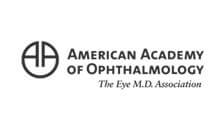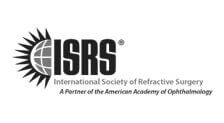An annual eye exam could save your sight!
If you have diabetes, you already know how important it is to stay on top of the condition by working closely with your doctor to monitor your blood sugar and overall health. But did you know that diabetes can also have a negative impact on your sight?
November is Diabetic Eye Disease Awareness Month, making it a great time to talk about the sight-stealing complications that can arise for people who live with diabetes. In the United States, diabetes is the number cause of blindness. According to the National Eye Institute, over 7 million Americans are impacted by diabetic eye disease (like diabetic retinopathy and macular edema)!
If you have diabetes, it’s important to work closely with your trusted Carter Eye Center eye doctors to stay in front of any potential complications that could affect your vision because diabetic eye disease is a real threat to anyone who has diabetes.
There are several kinds of diabetic eye disease, but all of them have the potential to result in vision loss and even blindness. At Carter Eye Center, we care about you, your health, your eyes, and your vision!
Ask the Expert: Dr. Harvey Carter
Which eye conditions are associated with diabetes?
- Diabetic retinopathy is the most common microvascular complication among people with diabetes, resulting in more than 10,000 new cases of blindness each year.
- Diabetic macular edema is the most common cause of visual loss in people living with diabetes and is closely related to diabetic retinopathy.
- Cataracts are certainly considered a normal part of aging, but people with diabetes are at higher risk for developing them at a younger age; two to five times more likely, to be exact.
- Glaucoma. People with diabetes are more likely to develop this eye condition, which is associated with a build-up of pressure in the eye that can come in several forms or types.
What causes diabetic retinopathy?
Diabetes causes the weakening of the tiny blood vessels that nourish the retina. As a result, fluid and blood leak from these weakened vessels, and new vessels that grow can be distorted and begin to bleed. This change can injure the retina, leading to loss of vision.
What are the symptoms of diabetic retinopathy?
Diabetic retinopathy typically develops without any warning signs. Damage to the eye can occur slowly and may go unnoticed until there is significant damage. For this reason, anyone with diabetes should receive regular monitoring by a retina specialist.
How are diabetic retinopathy and diabetic macular edema treated?
Treatment for diabetic eye disease is unique to each patient and will be based on your age, medical history, lifestyle, and the degree of damage to your retina. In its earliest stages, diabetic retinopathy may not require treatment beyond regular monitoring.
If treatment is required, we will go over all your options, including risks, benefits, and alternatives, before deciding on the best treatment plan for your situation. Medical management of diabetic retinopathy typically includes intravitreal injections or laser therapy (also called photocoagulation) to seal or shrink leaking blood vessels.
Don’t Skip Your Annual Sight-Saving Exam
Researchers at Wills Eye Hospital in Philadelphia found that more than half of patients with diabetes skip an annual comprehensive eye exam. They also discovered that patients with less severe diabetes and no eye problems were most likely to skip these recommended yearly checks.
Annual comprehensive eye exams are so important as they can reveal hidden signs of disease, allowing for more timely treatment. This is why the American Academy of Ophthalmology (AAO) recommends people with diabetes have them annually or more often as recommended by their eye doctor.
“Vision loss is even more tragic when it is preventable.
If you have diabetes, it is so important to have a yearly comprehensive eye exam.”
Harvey Carter, MD, board-certified ophthalmologist and founder of Carter Eye Center
At Carter Eye Center, we want our patients to enjoy a high quality of life while managing their diabetes. Dr. Carter has extensive experience in the diagnosis and management of diabetic eye disease. If you have diabetes (even if you aren’t experiencing any eye symptoms), schedule a comprehensive eye exam at Carter Eye Center today to protect yourself from preventable vision loss.









